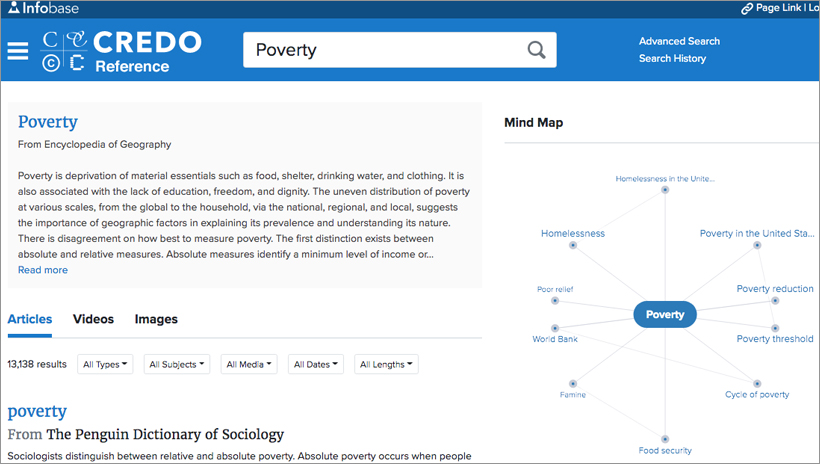Thinking of creative ways to teach the Association of College and Research Libraries (ACRL) Frames using Credo Reference? In this piece, we’ll cover three frames that can dive deeper into the complexities of research for your students.
Here are the three frames we will explore through this post:
- Authority Is Constructed and Contextual
- Information Creation as a Process
- Information Has Value
These three frames are integral to the learning process. It is important that each session centered around these ideas acknowledge this, and frame the session around the ideas and the ways in which they overlap or intersect. Through this process, it can be acknowledged that “Information has value” allows students to recognize not only that information access is a privilege, but also that some types of information have greater value than others.
The idea that some types of information have more value than others may lead to the need to establish the “constructed and contextual authority” of the materials they have accessed, and to explore areas in which that authority may have more impact. After establishing the materials utilized are relevant and authoritative, students will synthesize these materials to create a new argument or thought process.
Teaching the Three Frames
How does one teach these things in a brief and effective session? Focusing on topic creation may be one avenue to address these frames. As instruction librarians, we should definitely start with a discussion of what information needs they may have for their papers, and then ask whether an open resource like Wikipedia would be useful. Questions of whether one should simply trust this source should be asked, after which a comparison with Credo Reference’s collections can be accomplished.
Emphasizing the benefit of quick, searchable access to the work of verified scholars, and the reputation that this has as compared to Wikipedia, should engage students in authority. Use of Credo’s curated summary articles, related words, and Mind Maps can help students in developing the process they will engage in during the course of their work. Students can then Mind Map their way to a research topic, embodying the idea of information creation as a process.
 Other ways to explore all three frames include comparisons of different source types that may be present in Credo Reference, discussion of the information life cycle and where within this life cycle Credo may come into play, and finally, the explanation that some of the references used within the articles in Credo may be foundational to a discipline.
Other ways to explore all three frames include comparisons of different source types that may be present in Credo Reference, discussion of the information life cycle and where within this life cycle Credo may come into play, and finally, the explanation that some of the references used within the articles in Credo may be foundational to a discipline.
Of course, the frames may be explored individually, and that may provide different outcomes, but the application of the frames this way engages the knowledge creation, utilization, and authority in ways that should inspire inquiry. The ACRL framework is very adaptable, and works with many of the learning activities we traditionally use.
Need other ideas to integrate the frames into your online workshop? Consider these tools:
- ACRL Framework for Information Literacy Toolkit
- 23 Framework Things
- Community of Online Research Assignments – CORA
- ACRL Framework for Information Literacy Sandbox
See also:
- ACRL Framework and Your Online Classes
- It’s Here! In-Depth Guidance for Conducting Online Information Literacy Classes
- Reflecting on ACRL, Academic Librarianship, and the Pandemic: An Interview with ACRL President Karen Munro
- Library Journal Names Credo Reference to Its “Must-Have Databases for Academic and Public Libraries for 2020”




